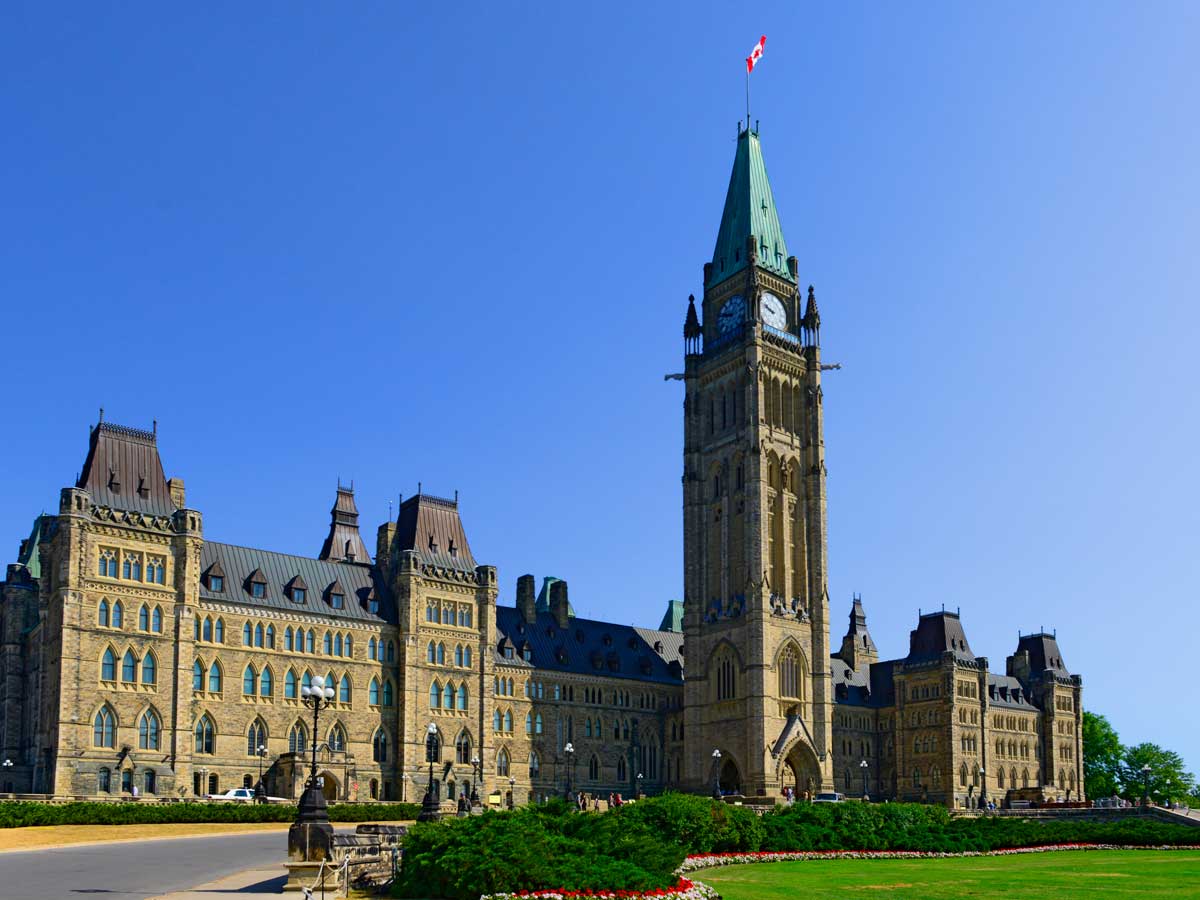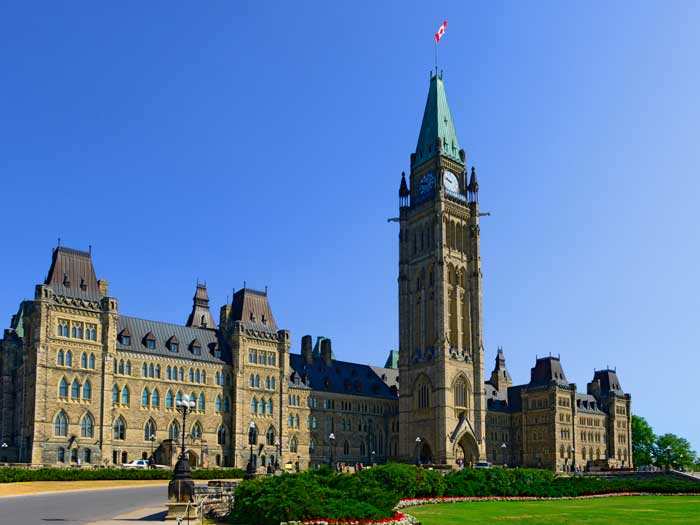
Federal budget 2023: focus on green energy, affordability
 The federal budget was tabled in Ottawa on March 28, 2023 (Getty Images/Dennis Macdonald)
The federal budget was tabled in Ottawa on March 28, 2023 (Getty Images/Dennis Macdonald)
Affordability measures for lower-income Canadians, green energy investment incentives and additional funding for health and dental care services: these are a few of the measures proposed in the 2023 federal budget, which was tabled on March 28 by Minister of Finance and Deputy Prime Minister Chrystia Freeland.
On a positive note, the federal debt-to-GDP ratio is expected continue to decline from 2024-25 onward and is forecasted to fall to $14.0 billion for 2027-28. However, a balanced budget is no longer on the near horizon, says David-Alexandre Brassard, chief economist for CPA Canada. “The difference compared to the previous budget and updates is that the government can no longer count on improved economic performance or higher inflation to boost its revenues, so it has less room to spend.”
Overall, the budgetary balance has worsened by close to $70 billion over the five years. Deficit predictions for 2023-24 were $47 billion, falling to $14.0 billion for 2027-28.
Here are some more highlights from the 2023 federal budget.
THE CLEAN ECONOMY
There is a clear emphasis in Budget 2023 on fostering a more competitive investment environment, with a package of incentives to support Canada’s transition to a net-zero future. And this is a move CPA Canada welcomes.
“On the innovation, productivity and investment side, we are seeing a real focus on the green transition,” notes Brassard.
The measures to grow the clean economy were mainly in the form of tax credits to promote investments, Brassard adds. “These measures aim at positioning Canada competitively versus the United States, which implemented multiple environmental incentives in the Inflation Reduction Act.”
Much of the content in Budget 2023 builds on momentum from prior budget and fall statements. It includes:
- Expanding eligible activities that qualify for the reduced corporate tax rates on eligible zero-emission technology manufacturing and processing income.
- A new 15 per cent refundable ITC for clean electricity.
- A new refundable 30 per cent ITC for clean technology manufacturing for property that is acquired or becomes available for use after January 1, 2024.
- Expanding eligibility for geothermal energy systems, clean hydrogen, and carbon capture utilization and storage.
The credit phaseout was also extended from 2032 to 2034.
“We are pleased that the government took a targeted approach to addressing competitiveness gaps in key strategic sectors,” says Rosemary McGuire, CPA, vice president, research guidance and support, CPA Canada.
AFFORDABILITY FOR CANADIANS
To help ease the burden on low- and modest-income families, Budget 2023 proposes to provide a one-time ‘grocery rebate’ by increasing the maximum GST credit amount for January 2023. The rebate would provide eligible couples with two children up to an extra $467 after the legislation passes. Single Canadians without children can qualify for an extra $234, while seniors can get an average of $225.
“What’s good about the grocery rebate is that it is specifically targeted to low-income households,” says Brassard. “And at $2.5 billion, it should not have a significant impact on inflation.”
In another effort to support household finances, the budget announced an increase in annual withdrawal limits for beneficiaries of Registered Education Savings Plans (RESPs) to $8,000 for eligible full-time programs and to $4,000 for eligible part-time programs, as well as allowing divorced or separated parents to open joint RESPs.
Other enhancements to tax-assisted registered plans include extending to 2026 the temporary measure that allows a qualifying family member (parent, spouse or common-law partner) to open a Registered Disability Savings Plan (RDSP).
“Details were also released as expected for a revised alternative minimum tax (AMT) for individuals, which will also start in 2024,” says FCPA Bruce Ball, vice president, taxation with CPA Canada. These include raising the AMT rate from 15 per cent to 20.5 per cent, broadening the AMT tax base and increasing the AMT exemption from $40,000 to about $173,000. “This means higher-income people may pay more and those at the lower end may no longer be subject to the AMT.”
OTHER HIGHLIGHTS
The government provided follow-up rules to deal with intergenerational business transfers following the enactment of Bill C-208, which will apply starting in 2024, notes Ball. Taxpayers would have the flexibility to use either an immediate (three-year test) or gradual (five-to-10-year test) intergenerational business transfer. “When planning for succession, it is important to keep in mind that business transfers after 2023 will be subject to the new rules," he says.
Finance released proposals to strengthen the general anti-avoidance rule (GAAR), including addressing interpretive issues, adding penalties, and extending the reassessment period. “There will be another consultation and final proposals will be released after that along with an effective date,” says Ball.
Other highlights include:
- A proposed two per cent tax on the net value of public company share repurchases of $1 million or more of equity for applicable transactions after 2023.
- An increase in the maximum employment deduction for tradespeople’s tools from $500 to $1,000, for 2023 and later tax years.
- Proposals for Employee Ownership Trusts (EOTs), including qualifying conditions and changes to tax rules to facilitate their establishment that will come into force as of January 1, 2024.
- Excluding payment card services by a payment card network operator from the GST/HST definition of “financial services” to ensure they continue to be subject to GST/HST.
Overall, then, the government has stuck to the playbook of raising spending at a time when they lack the revenues, stresses Brassard. “We remain concerned about the federal government’s focus on long-term reduction of the debt-to-GDP ratio without proper debt-reduction targets or limits on government spending or deficits. A more prudent approach would make sense in the event of an economic slowdown, which seems to have already started.”
DEEPER INSIGHTS ON FEDERAL BUDGET 2023
Check out CPA Canada’s federal budget tax highlights and tax news webpage, and watch the post-budget tax highlights webinar.